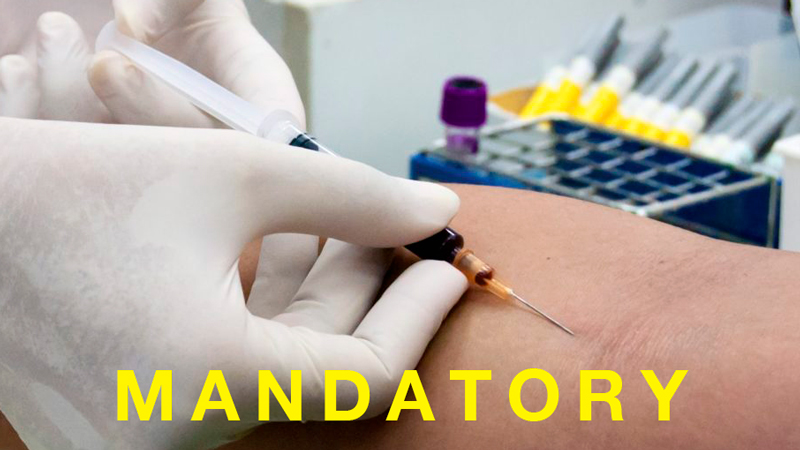
Argentina Creates Mandatory Vaccination Law For Passport, ID, Driver’s License, School & More
by Larry Cook
stopmandatoryvaccination.com
This article is GOOGLE TRANSLATED from this story.
In order to renew the DNI, passport and registration, the complete vaccination card must be presented.
The Senate approved on Wednesday a law that establishes the obligatory nature and free of vaccination against preventable diseases for all the inhabitants of the country, and stipulates that the complete vaccination card will be required at the time of processing the DNI, passport and driving record , among others.
The project was promoted by the Tucuman deputy Pablo Yedlin (Front Justicialista by Tucumán), and will replace the law 22,909, which is in force since 1983. So far, the mandatory vaccination applies only to children and the new project will be made extensive also to adults. The gratuity of the vaccines, in as much, happened in fact, but from now on it will be protected by law.
According to the text itself, it will be the Executive, through the Ministry of Health of the Nation, which must regulate in a term of 120 days the fine print of the norm for its specific application.
“It’s a law of much consensus, not only was it unanimous in both houses, but it had the support of all the scientific societies, and it puts Argentina at the height of its vaccination schedule, which is very generous,” Yedlin said. dialogue with LA NACION.
Requirement for the DNI
The legislator also explained one of the points of the project that generated more controversy. Until now, proof of vaccination was a requirement to enroll in schools. But Article 9 of the new law states that “the certification of compliance with the National Vaccination Calendar must be required” also at the time of processing the ID, passport or driver’s license.
“It will not interrupt the processing of any document,” said Yedlin and explained that in case of not presenting the full schedule of vaccinations, the person will be “notified” as well as the local health authority, to get in contact and “offer the necessary vaccines”.
“They are control points,” the Tucuman insisted. “It’s not that you will not be able to sign up for the faculty if you do not have the Hepatitis B vaccine, but the university has the right to send you to vaccinate because it’s mandatory that you have it.”
The legislator recalled that vaccination in our country is mandatory “for the solidarity effect” it has. “By vaccinating you not only protect yourself, but also all those groups that for some reason can not be vaccinated,” he said. And he gave the example of measles, whose fatal victims are generally less than a year old that can not be vaccinated and depend on the rest of the population being immunized so as not to infect them.
Unique Vaccination Card
The new law provides for the creation of a new document, the Single Vaccination Card (CUV), which will certify the application of the vaccine. The same will be delivered by all agencies capable of applying vaccines: public and private hospitals, and pharmacies. The card will also be used to process family allowances and medical examinations.
In addition, the norm contemplates the creation of the new National Registry of the Digital Vaccinated Population, where there is evidence of all vaccines that have been applied.
“The aim of the registry is to have the best possible coverage to try to have the healthiest population possible, the Argentine is generally a person related to vaccination, the anti-vaccination groups in Argentina are very small and the idea is to keep it that way,” said the tucumano deputy.
The new framework also provides that parents, guardians or legal representatives will be responsible for the vaccination of their dependents and, in the case of non-compliance with this measure, “will generate actions of the corresponding jurisdictional health authority, aimed at effecting the vaccination, that will go from notification to compulsive vaccination.”
There will be more controls on those who work in the field of health and in laboratories, since they will be required to have their vaccines updated more regularly. The law also justifies the absence from work on the day a vaccine is to be applied, with prior notice to the employer and a certificate.
The National Registry of Persons, an organization that reports to the Ministry of the Interior, informs that the procedure will not be impeded due to the lack of a vaccine certificate. At the end of Article 13 of the law, it is clarified when it says: “in such a way as to favor the population’s access to vaccination at all stages of life without impeding the completion of these procedures.”
CLICK HERE >>> vacunas <<< for the full text of the “standard.”
It is a PDF Document.

